I think few people will deny the truth that talking about a tree in the interior is akin to talking about snow in Antarctica, or rocks in the Himalayas. The theme is also vast and inexhaustible. However, for all its infinity, it is possible to derive certain rules and patterns that will help use this material in the interior of a home as efficiently and effectively as possible.
Content
A bit of history
From time immemorial, the tree has been used by people for the construction, as well as the internal and external decoration of their home. It is difficult to come up with more universal material for these purposes.
Strength, ease of processing, texture beauty, durability (especially hardwood) are the most important qualities of wood.But its greater value is the creation of a sense of comfort, an atmosphere of soft warmth and tenderness, emotional peace.
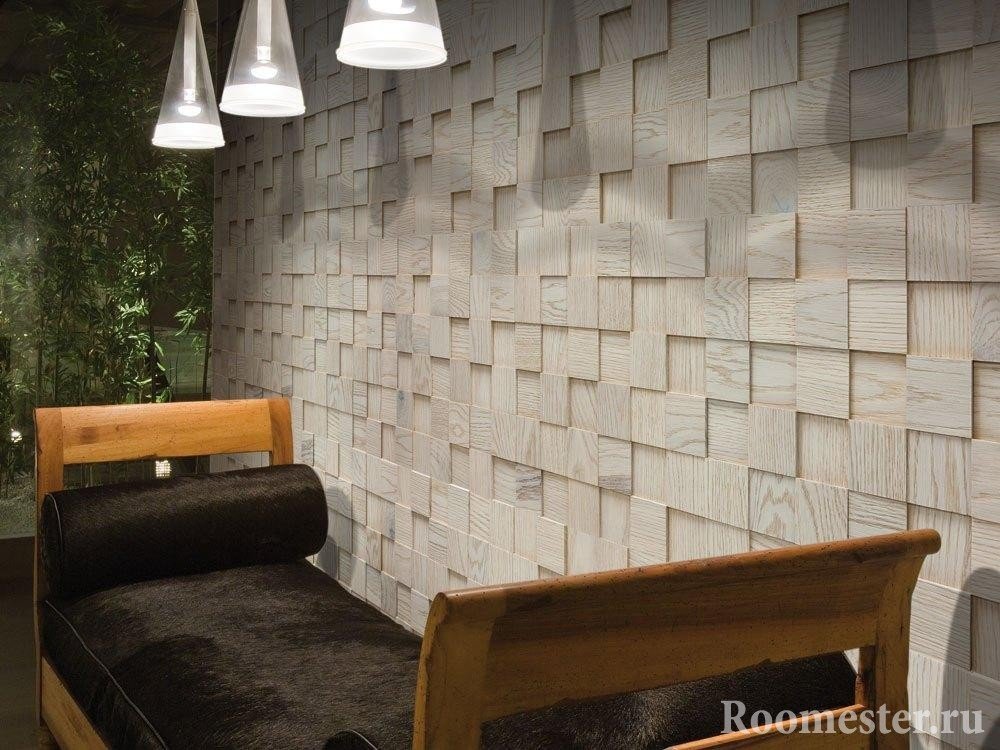
Wooden products can fit into any interior. Not a single architectural style, not a single design school is able to abandon this material.
Traditional use
Usually, windows, doors, floors and windows were exclusively wooden in the room. Now, due to the emergence of a large number of new construction, decoration and decorative materials, wood has slightly lost its position.
The main reason for this is purely financial, however, I doubt that a person with a developed sense of taste and style would prefer metal-plastic windows to high-quality wooden. Especially if the former imitate the latter.
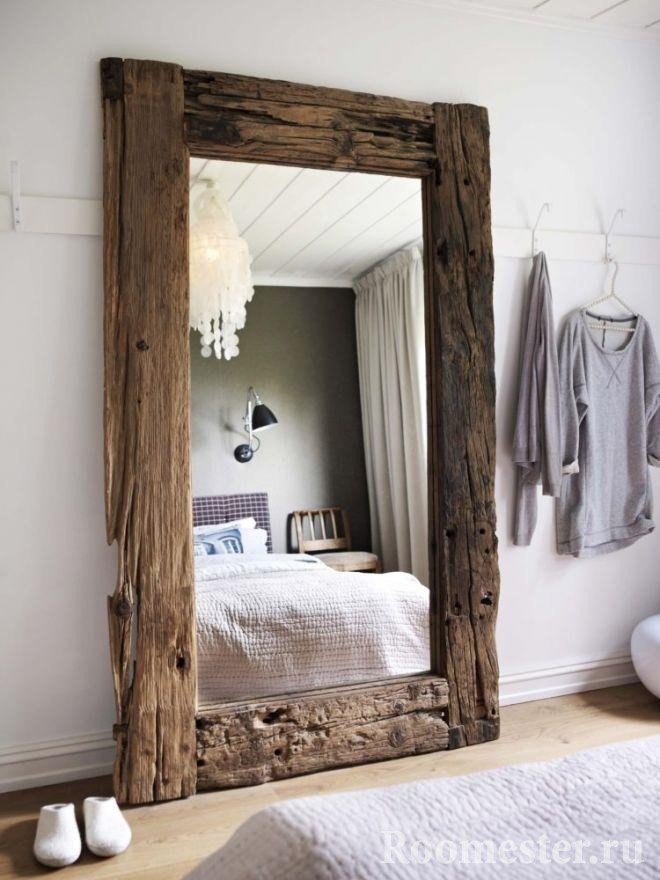
The same problem applies to sexes. Plastic coatings are not currently considered. If the owner of the house or apartment has sufficient financial resources, then in the case of installing glass or ceramic floors (if this does not apply to the kitchen and bathroom), he will have to take care of heating these floors from below, which is an expensive thing.
Floors need to be covered with carpets, skins of exotic animals, mats, or some other materials that protect the feet from glass not heated by the sun, since the glaze of ceramic tiles is nothing more than glass.
Here, a natural wood floor demonstrates its advantage - it does not need any heating.
Furniture
In modern apartments, furniture plays a huge role in shaping the style of the interior space of the home. Especially if it is a solid, high-quality furniture made of valuable wood.
It is the furniture - all these cabinets, chests of drawers, tables, chairs, sofas and armchairs, especially if they are designed in the same style - will shape the character of the rest of the decor.

The direct opposite of this is the submission of all the components of the interior to the single designer's intent.In this case, furniture, decorative elements, a common color scheme - all this becomes the embodiment of a single concept. Here you can already safely play with color combinations, space textures.
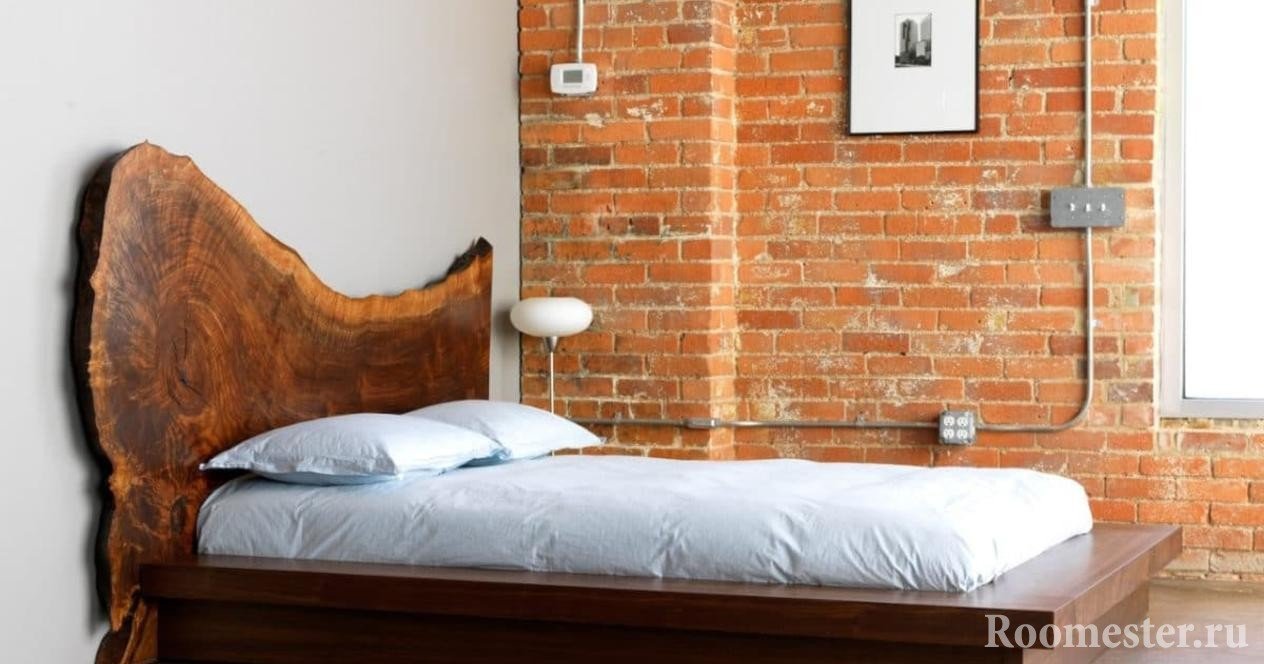
Modern furniture can be surprisingly diverse. It is also made from such cheap species as pine or alder (for example, country style), up to such valuable ones as oak, golden ash, mahogany.
The color palette is also impressive - from white wood of golden ash - to black ebony. The surface texture can be changed from rough-machined, almost rough, to polished, almost mirrored.
Beams
Extremely spectacular wood looks like ceiling beams. Depending on the shape, size and location, they can significantly affect the creation of a kind of visual rhythm, together with a certain spatial division of the room.
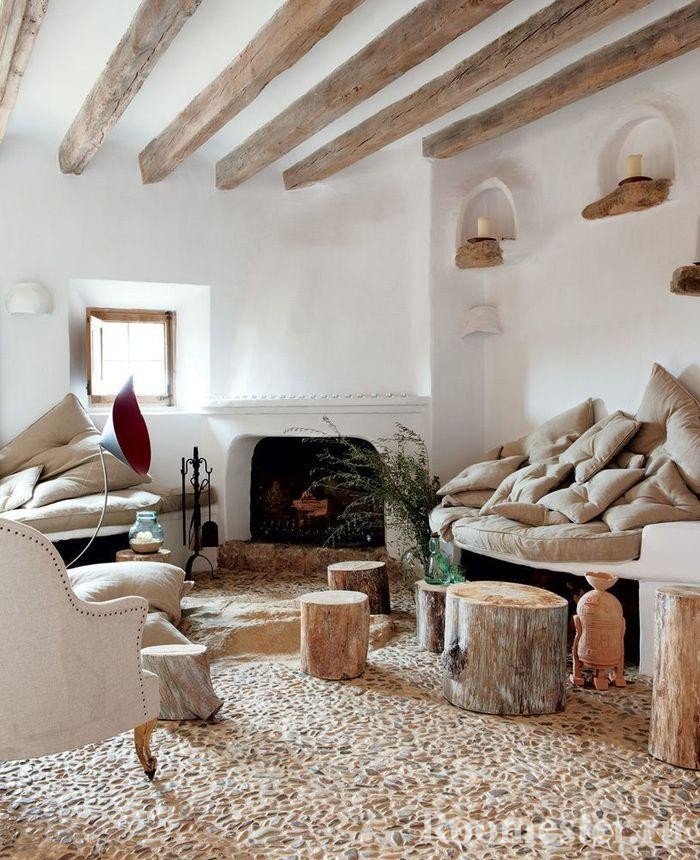
A lot depends on the color of the beams. Thick beams far spaced from each other can be dark, almost black, the color of bog oak.
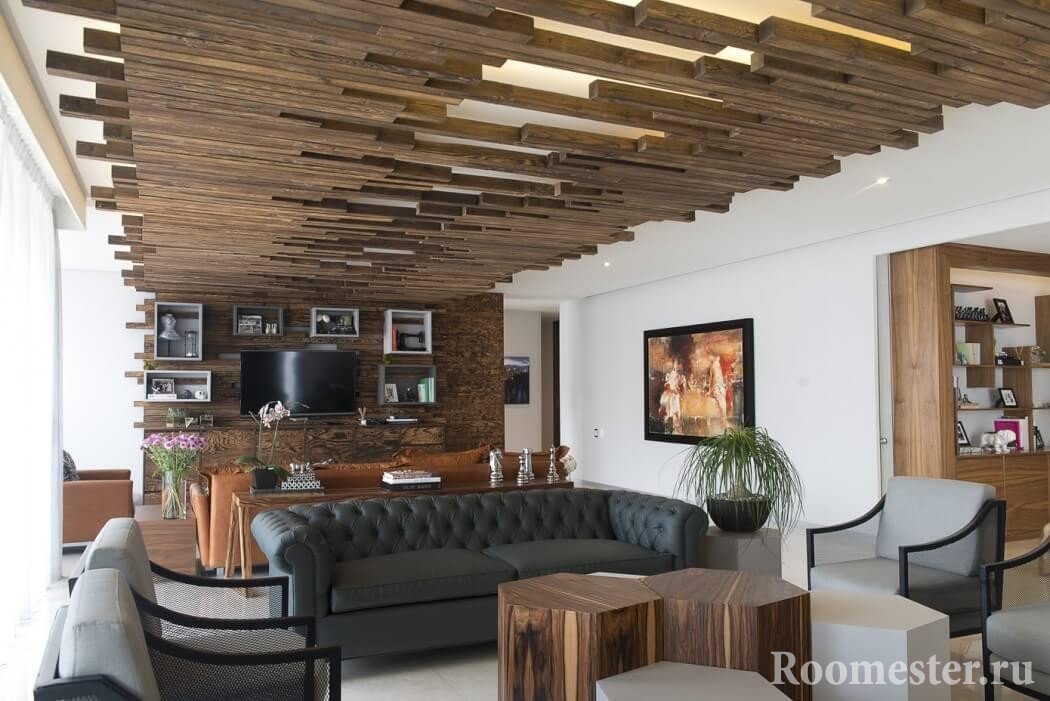 In contrast to the white ceiling and, preferably, the white walls, this will create a feeling of a solid old building with a rich history. In contrast, not too thick beams, the colors of birch or beech, can be placed denser
In contrast to the white ceiling and, preferably, the white walls, this will create a feeling of a solid old building with a rich history. In contrast, not too thick beams, the colors of birch or beech, can be placed denser
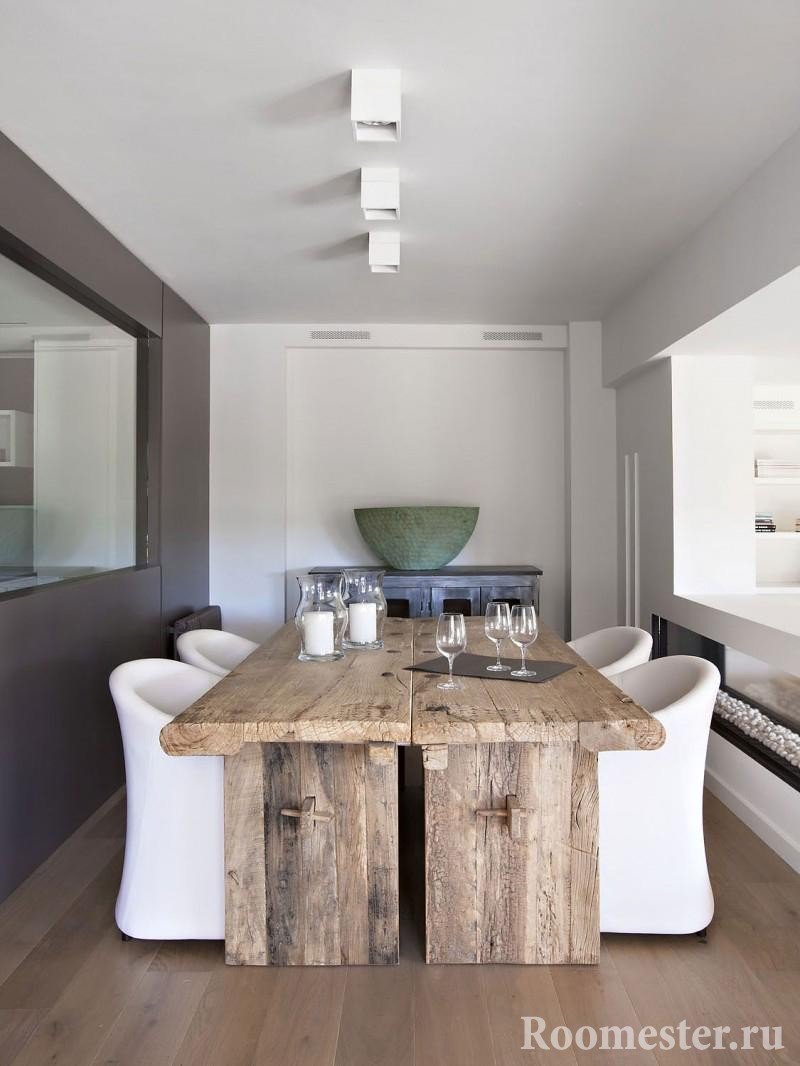
In cottages, in summer cottages and hunting houses, beams can already be not imitations, but full-fledged elements of the supporting structure, along with wooden columns and rafters. Here we have the classic unity of artistic expression with functionality.
Cuts
Potentially, an extremely rich artistic element is the end saw of a round wood. These dies of different diameters, mounted on a wall or partition, create a great decorative effect.
Saws well imitate woodpile, which fits perfectly into the interior of the kitchen, or living room with fireplace. In this case, in addition to round, it is desirable to use, as well, semicircular and quarter dies.This will tighten the fit of the saw cuts to each other, reduce the voids and give even greater resemblance to the woodpile.
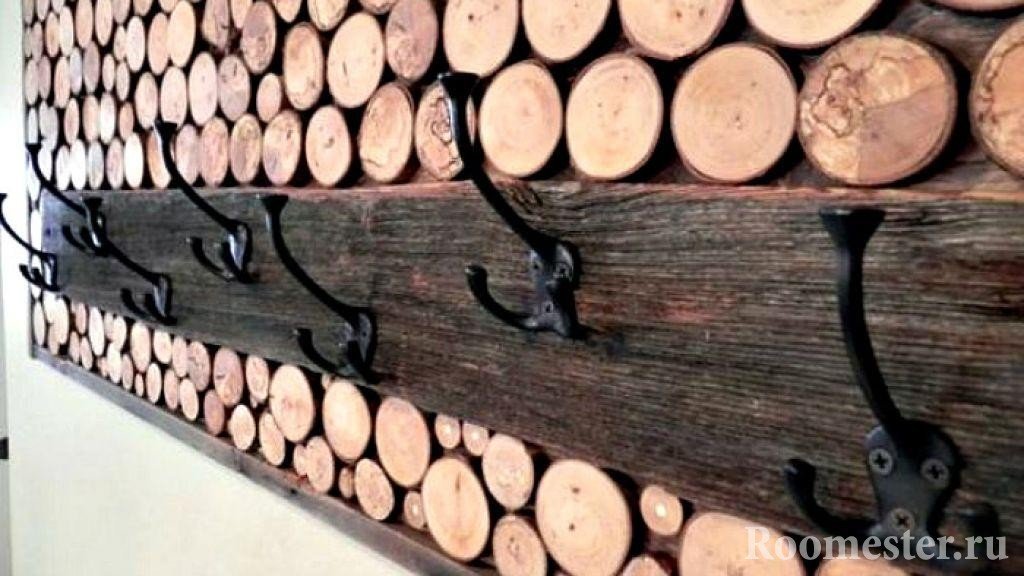
A separate category is the cuts of large diameter trunks. As a rule, they are used in the manufacture of countertops, wall panels of a non-standard type. As tabletops, a very thick unedged board can also be used.
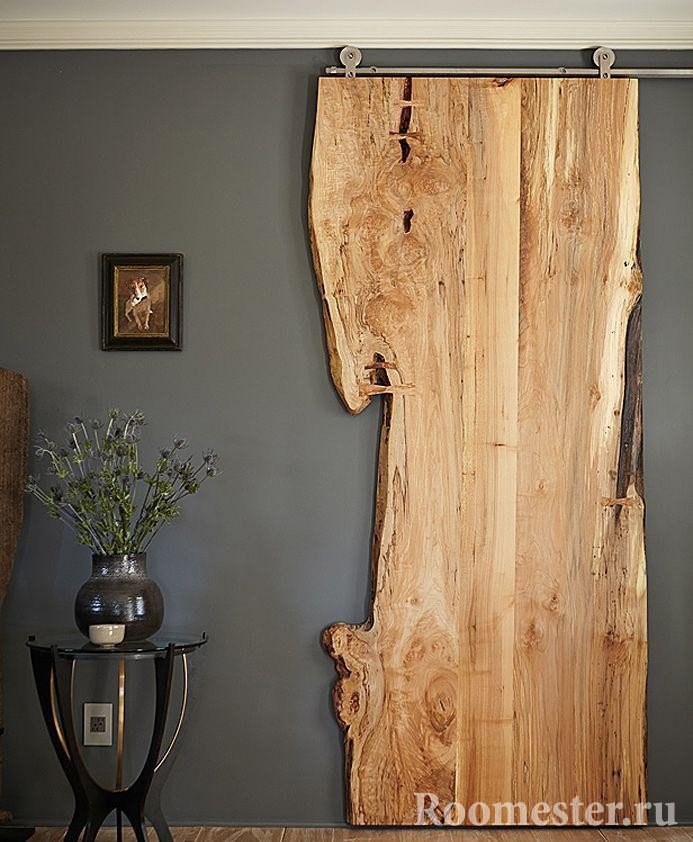
A stump can be considered a special case. It can also be used as a stand under the tabletop, preferably glass, so that all the smoothness and whims of the lines of the tree trunk are visible, as well as the coffee table itself, or a bedside table, if the diameter allows.
Wall decoration
Using a tree, the walls of a room can be decorated in many ways. End cuts have already been mentioned above.
You can add to this that the dies can be made of edged square or rectangular timber of various thicknesses. Panels composed of such cuts are well perceived visually.
This can be a vertical insert from floor to ceiling, a diagonal, wavy strip. You can draw from these dice a stylized drawing of a tree in the entire wall. Options can be listed for a very long time. The main thing is to find an option for a particular, specific case.
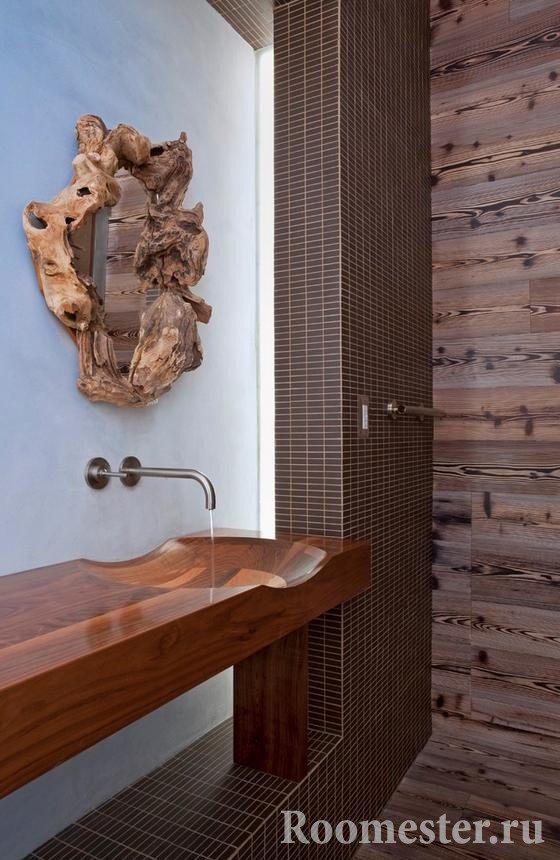
The walls are also decorated with slats of various thicknesses. You can use the board. Grooved, joined in length, form a continuous flat surface. They can be faced, or, as joiners put it, “sewn up” either a separate wall or the entire room.
The latter, for example, is practiced in the design of hunting lodges.
To create a wood-like interior, wallpapers from natural cork and natural veneer are also used. A natural prerequisite for their use is, of course, the maximum evenness of the walls.
Additional wood decor
The use of stumps as expressive plastic objects in the decoration of a home has already been mentioned.
But, as they say, do not stump one. To give the interior some zest, an aesthetic emphasis, you can use many other, not very large-scale, but extremely expressive means. They can be a fancy snag on a coffee table, or the root of an old tree on a mantelpiece.
A fancifully curved tree branch attached to a wall can replace a whole panel.
Any wooden bauble can become an artistic accent, an aesthetic nerve of the entire modern interior space. Perhaps it will be an original figurine, a vase from a birch burl, or a bast shoe.
This role can be played by a set of wooden utensils, an exotic mask on the wall, candlesticks, or chess with figures of light and dark woods. There are no barriers to the flight of fantasy.
About trees in a modern interior
Separately, it should be said about a tree not as a material, but as a plant. There are two ways to place it in the interior. The first way - if space permits - is to install tubs with live, small, shade-laden trees in the room.
Also, instead of a living tree, you can install a dry, larger size, with a partially sawn crown. The tree should reach the ceiling, and cut branches to create the effect of germination through the ceiling.
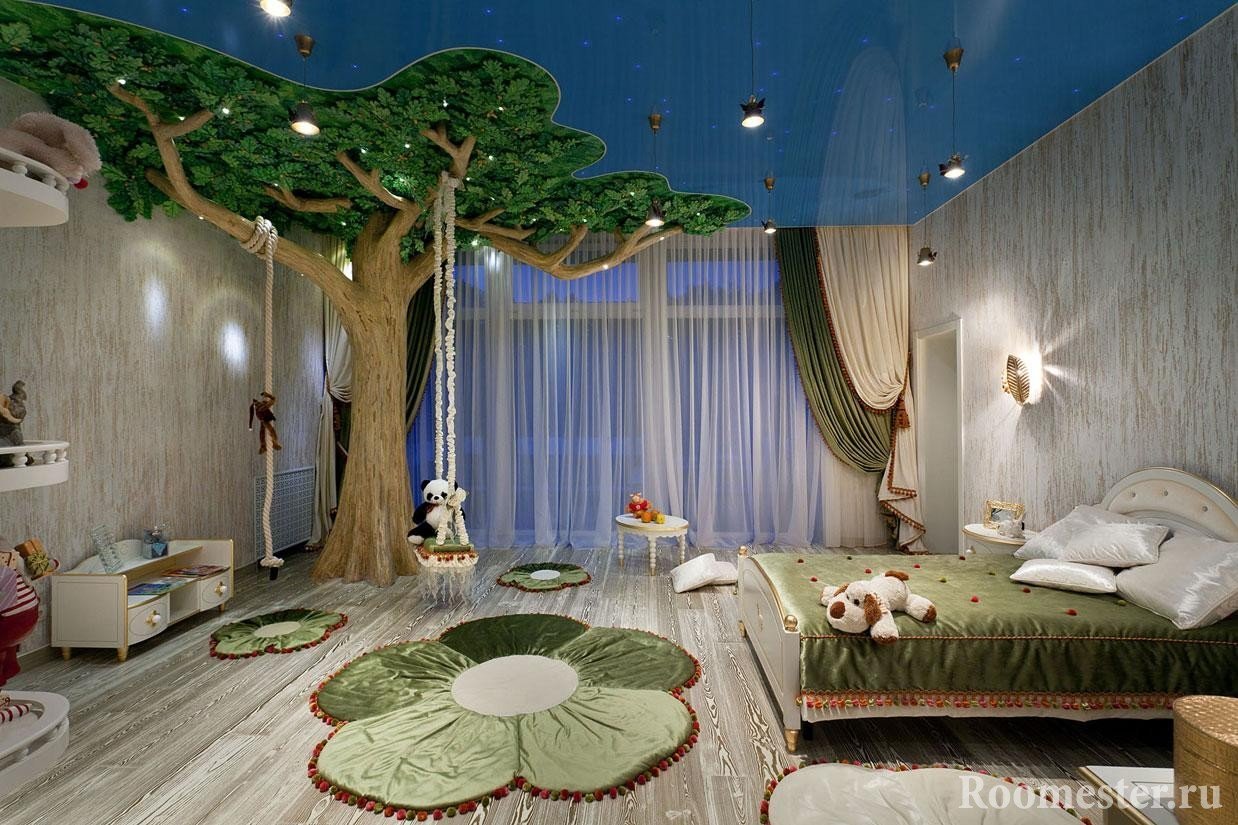
The second way is to depict a tree using artistic means. It can be drawn on the wall, cut out of hardboard, make a wall mosaic using sea pebbles, ceramics, dice, bars and battens.
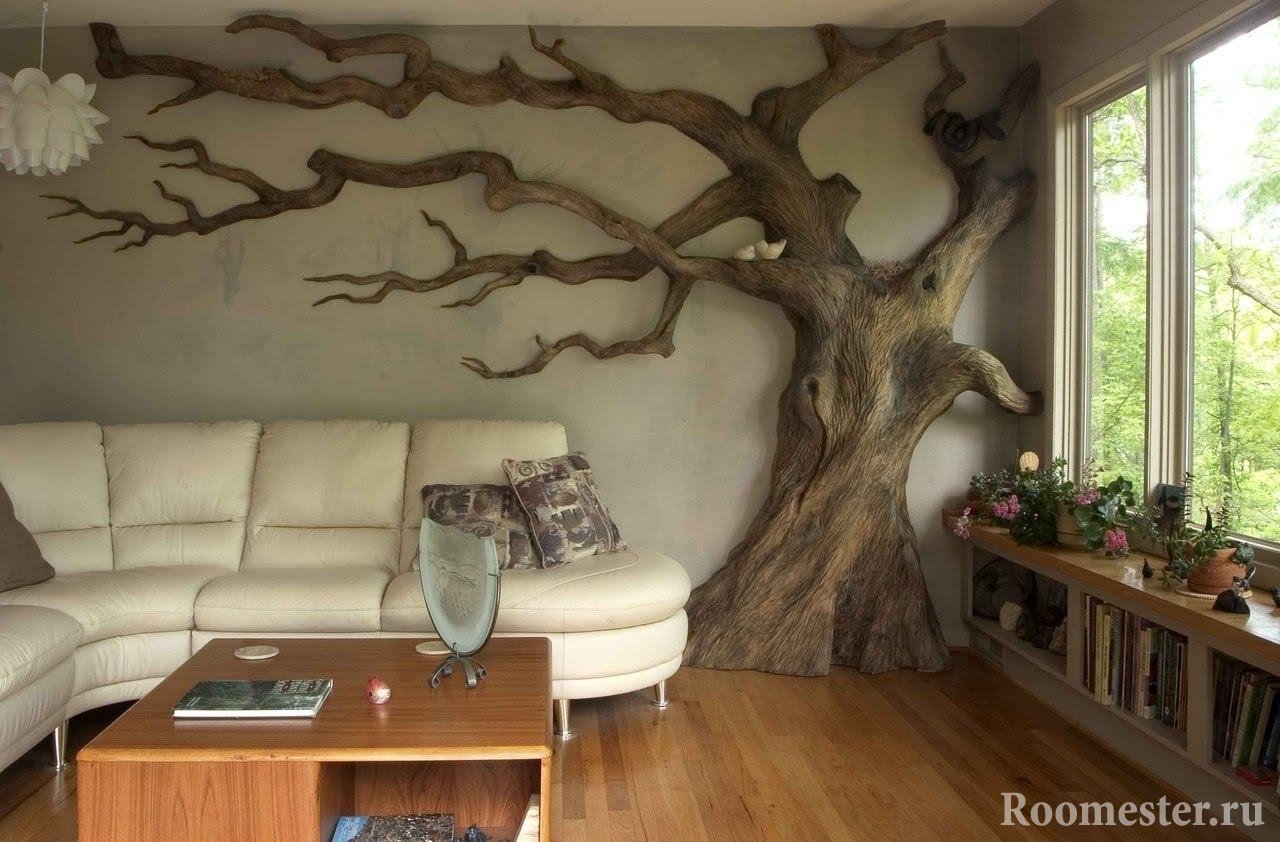
Especially grateful fans of painted walls - of course, children. In children's rooms trees are usually painted. The manner of painting can be completely arbitrary - from strict naturalism to the most arbitrary stylization.
The main thing is a skillful combination of colors, creating an atmosphere of fabulousness that fills the nursery.The crown of the tree, for example, can be higher than the wall, fill part of the ceiling, swim among the fluffy clouds. The trunk and stylized branches will add volume to the composition. In addition, now there will be something to hang your favorite toys and fix the most successful drawings.
A little bit about style
Wood is an amazing natural product. Before any artist-designer, whether an expert or an artist, it opens a horizon of unlimited possibilities.
The tree forgives the grossest design mistakes, combines practically with any materials, playing either in similarity or in the sharp opposite of their properties.
It can be easily cut (if it is not a bog oak), it is easy to tint and paint, modern impregnations make it possible to use it even in bathrooms! It, along with stone, is the most powerful weapon in the arsenal of a modern designer. However, the same can be said about the designers of two thousand years ago.
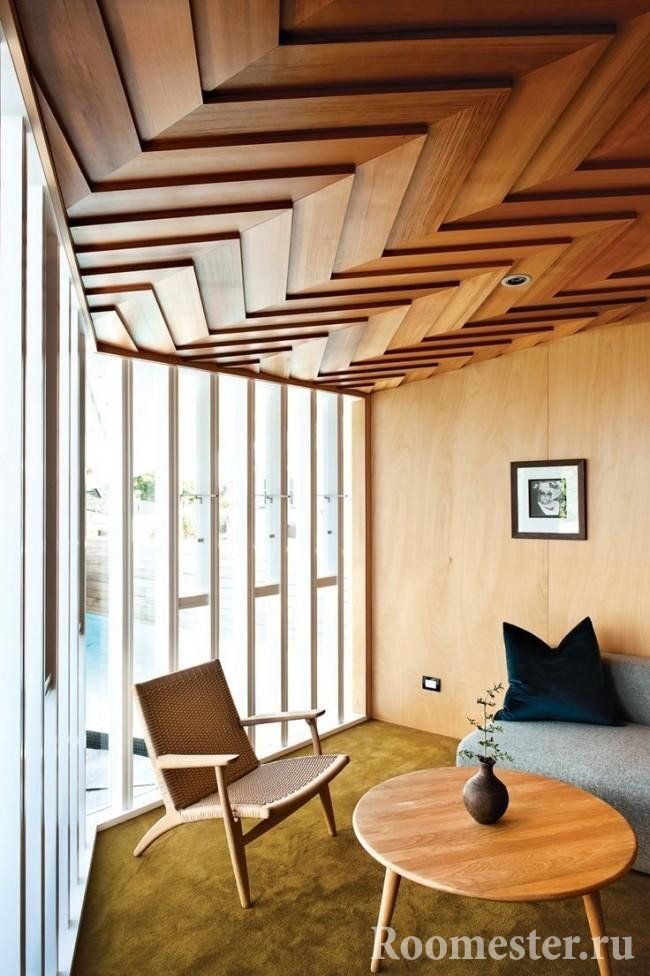
Both wood and stone are very expressive materials. Therefore, in working with them, you should always use the alternation method: light - with dark, warm - with cold, rough - with smooth.
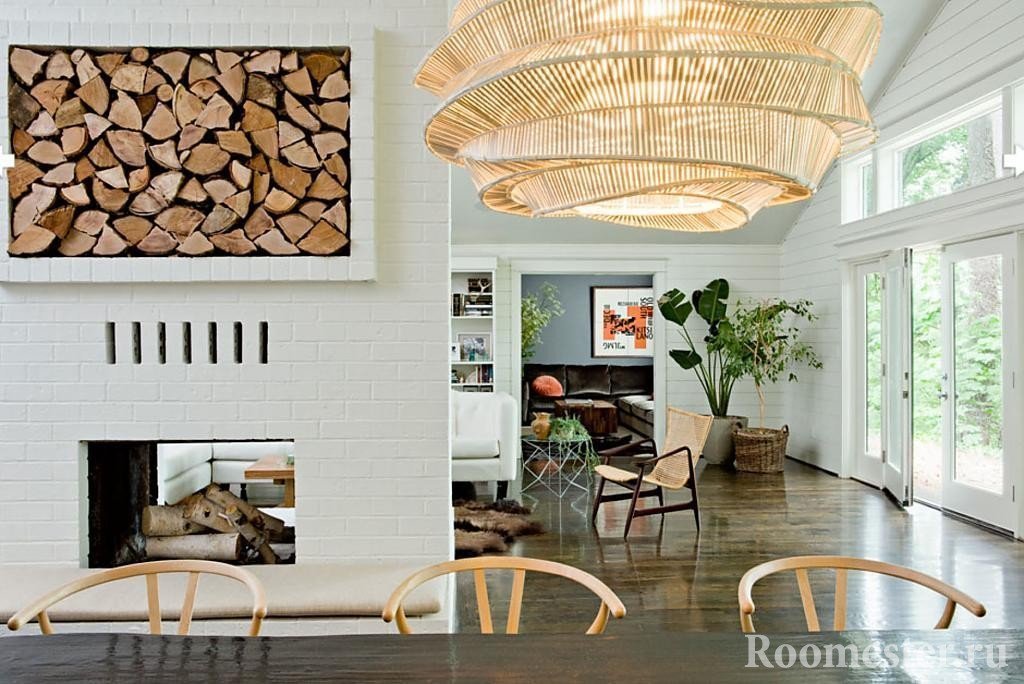 To highlight, or, as the artists say, “tear out” one or another element, it should be placed either in a neutral (white plaster) or in a contrast medium. For example, a meter-long woodpile looks great on a light, plain wall background.
To highlight, or, as the artists say, “tear out” one or another element, it should be placed either in a neutral (white plaster) or in a contrast medium. For example, a meter-long woodpile looks great on a light, plain wall background.
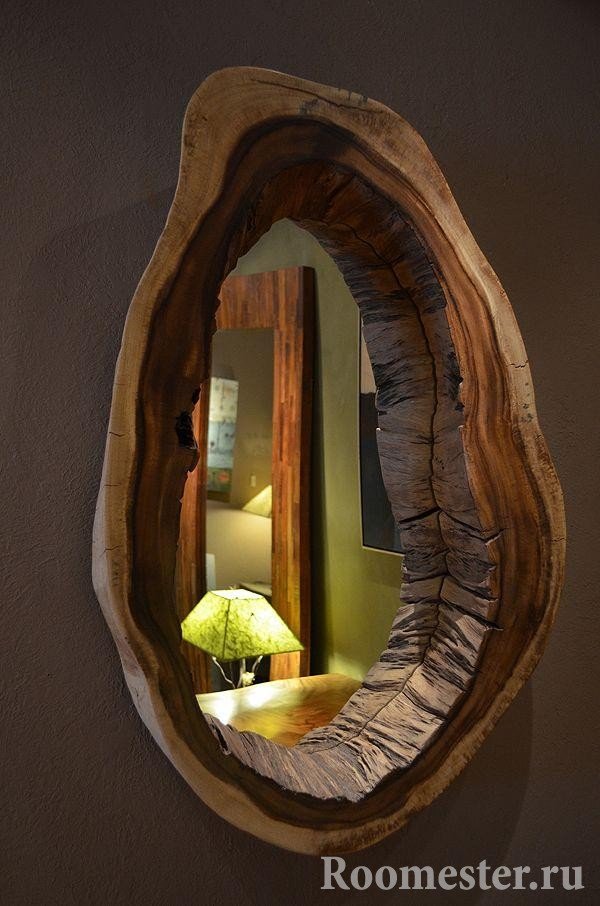
Here, in fact, a small number of tricks to help create a satisfactory home design.

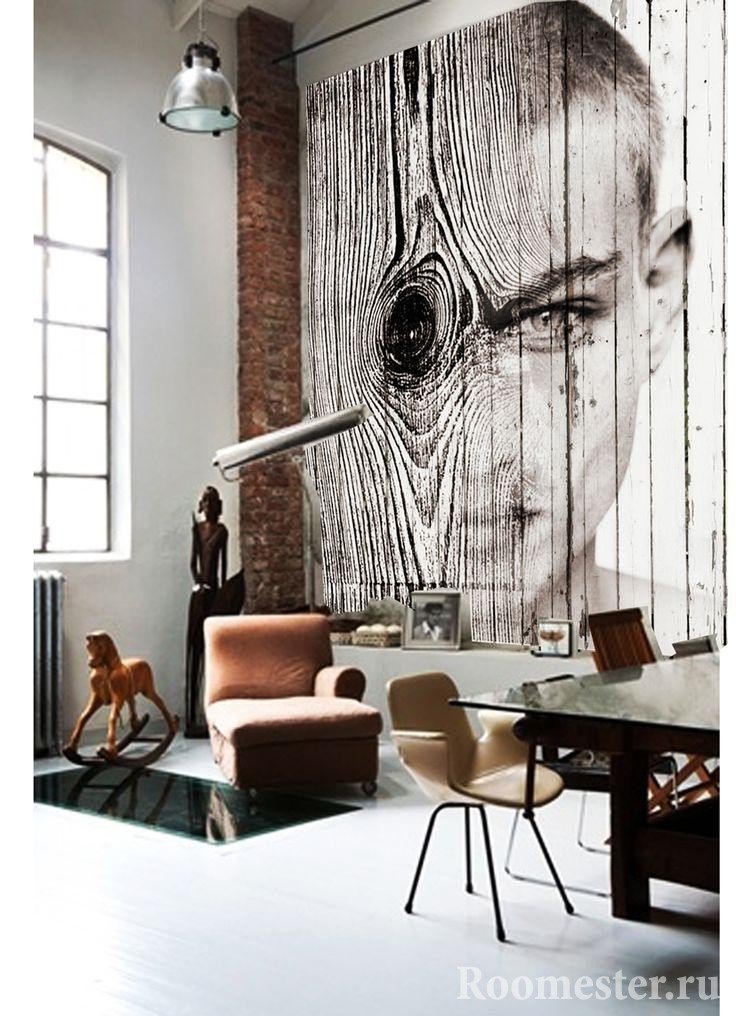
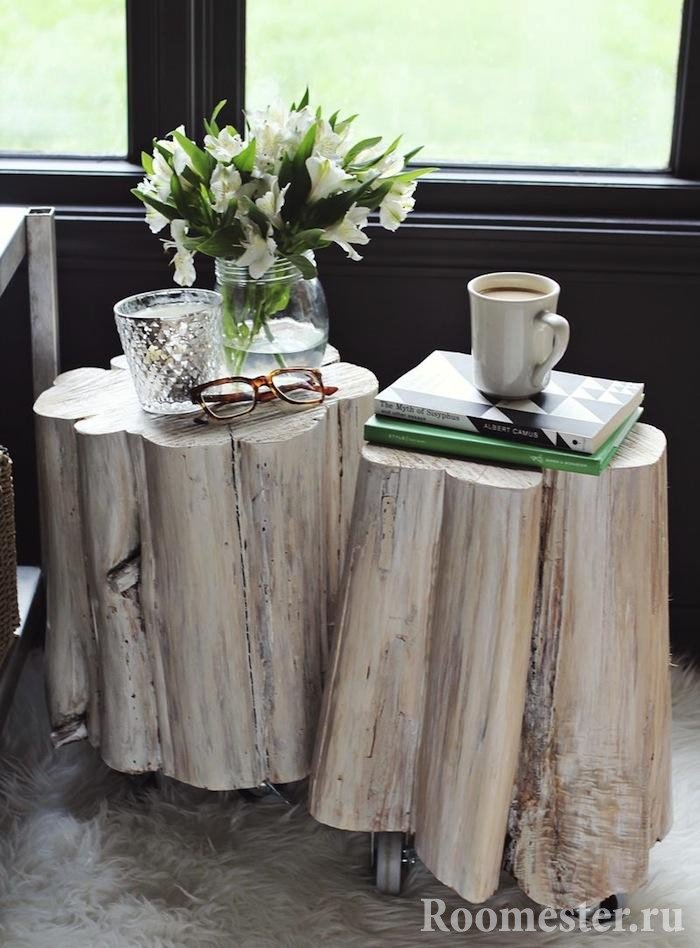
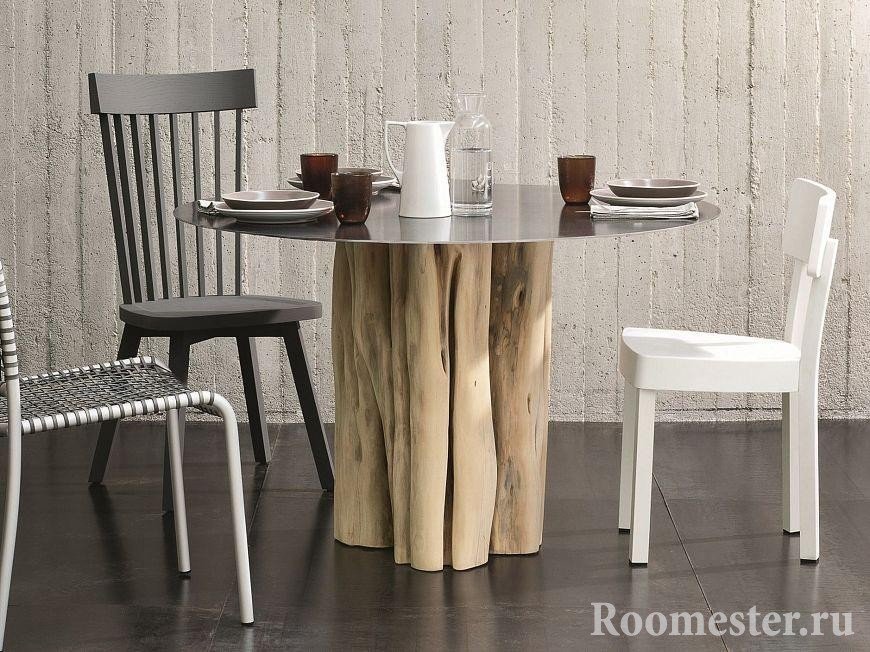

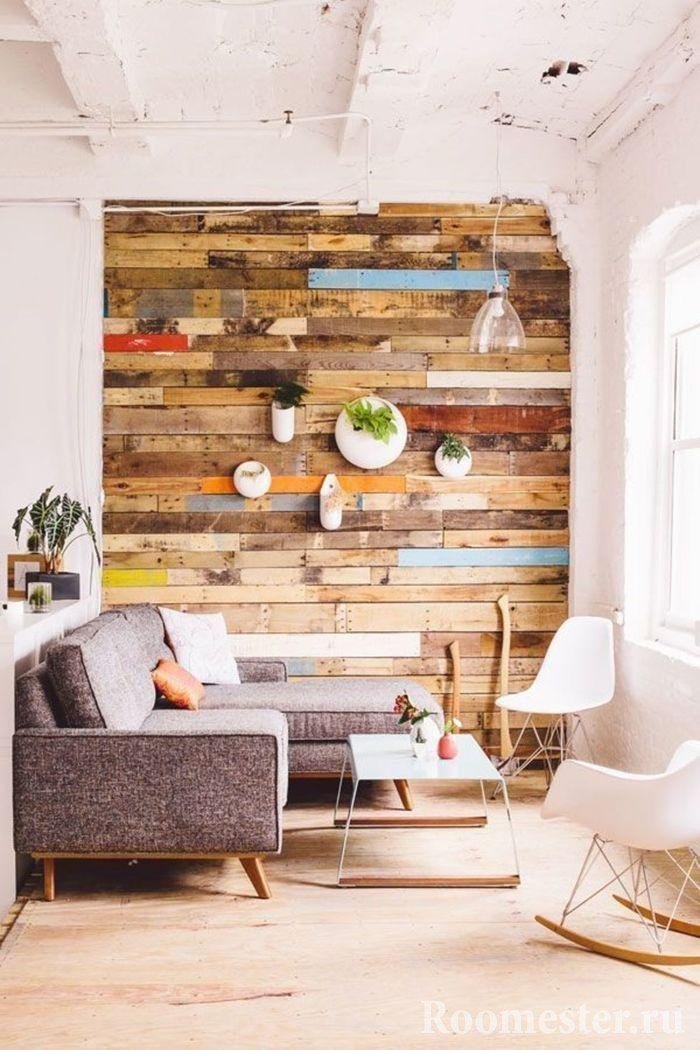
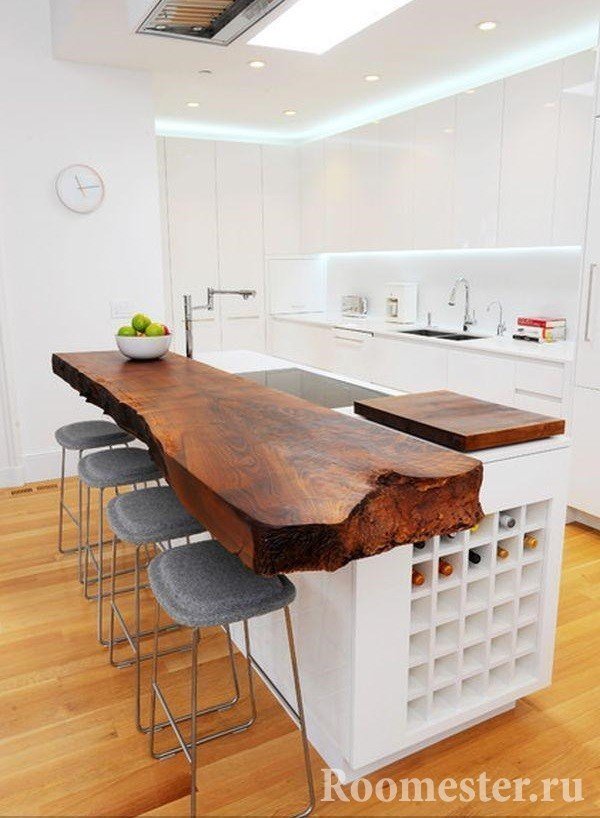
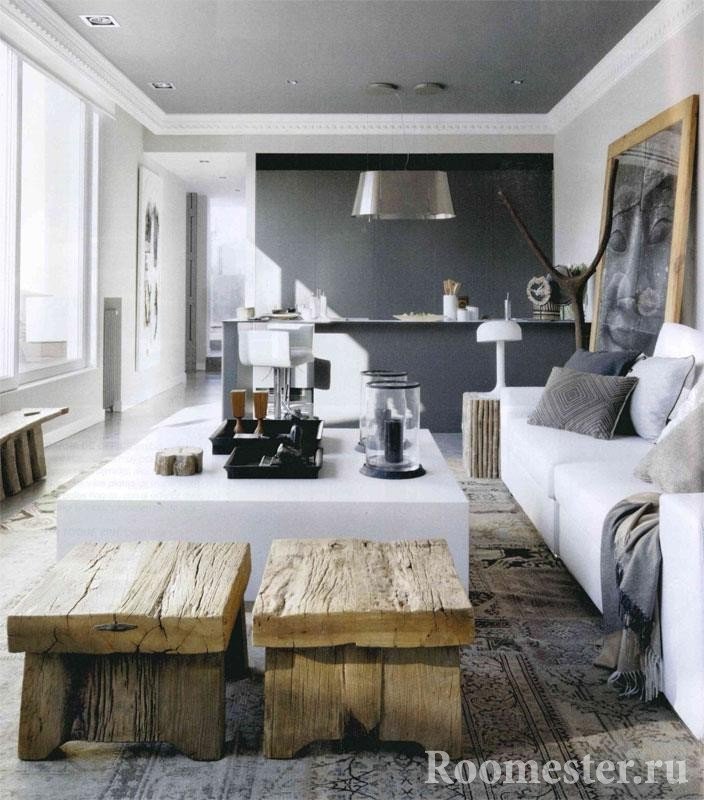
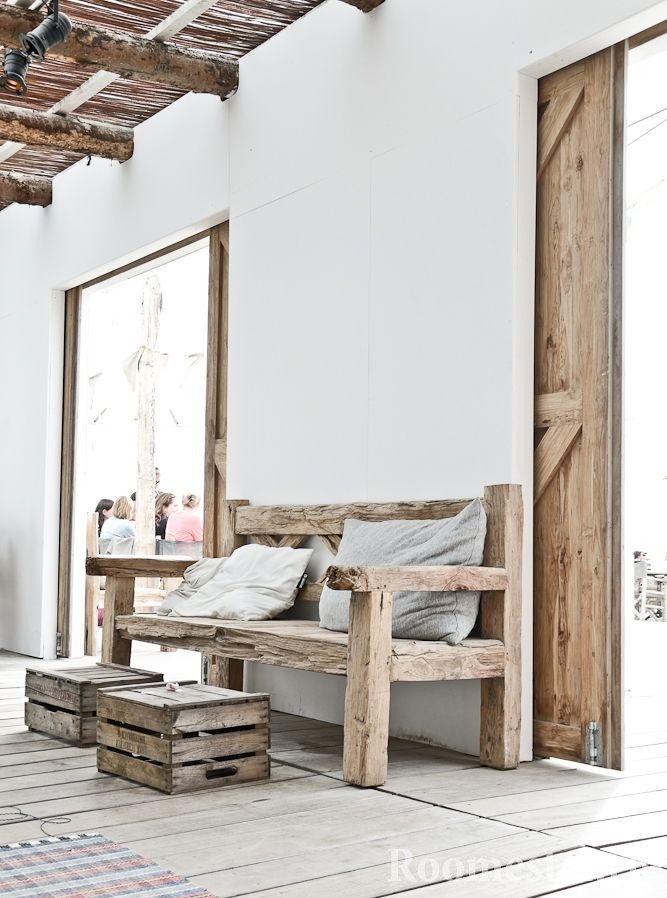
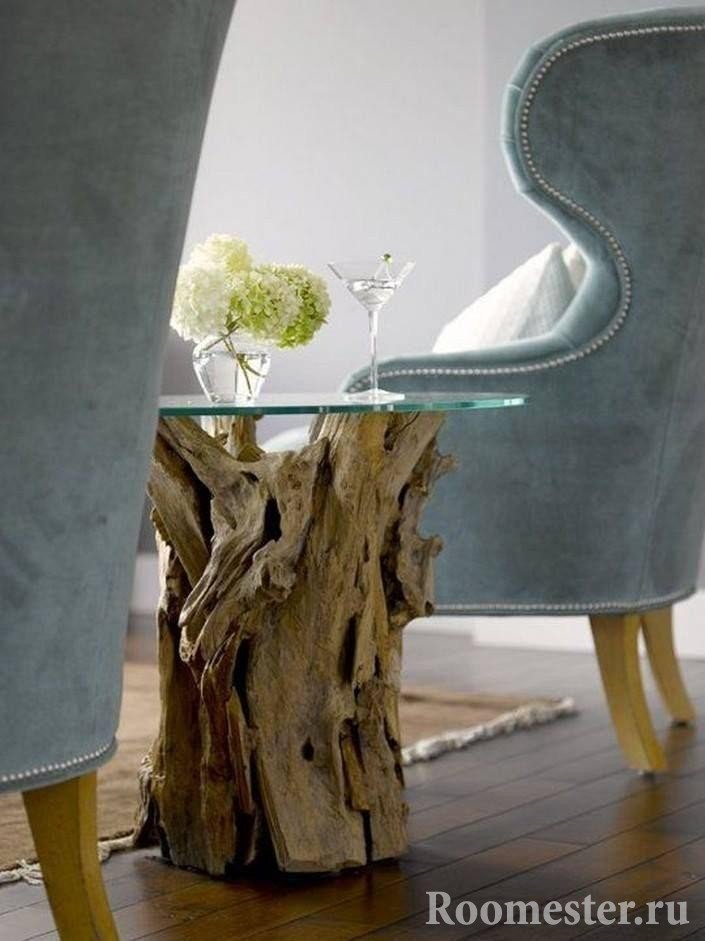
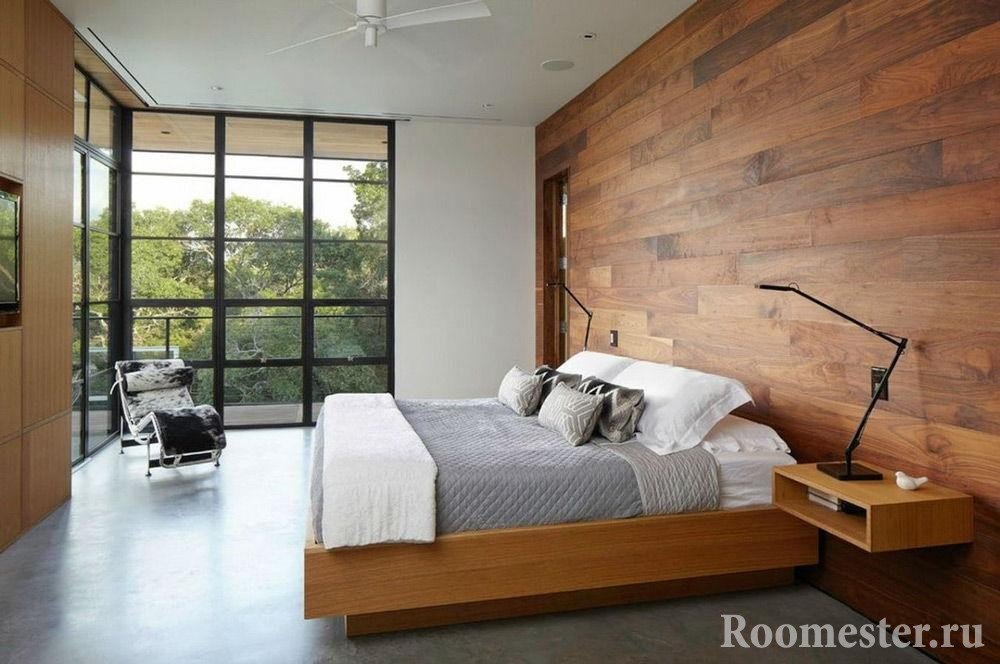
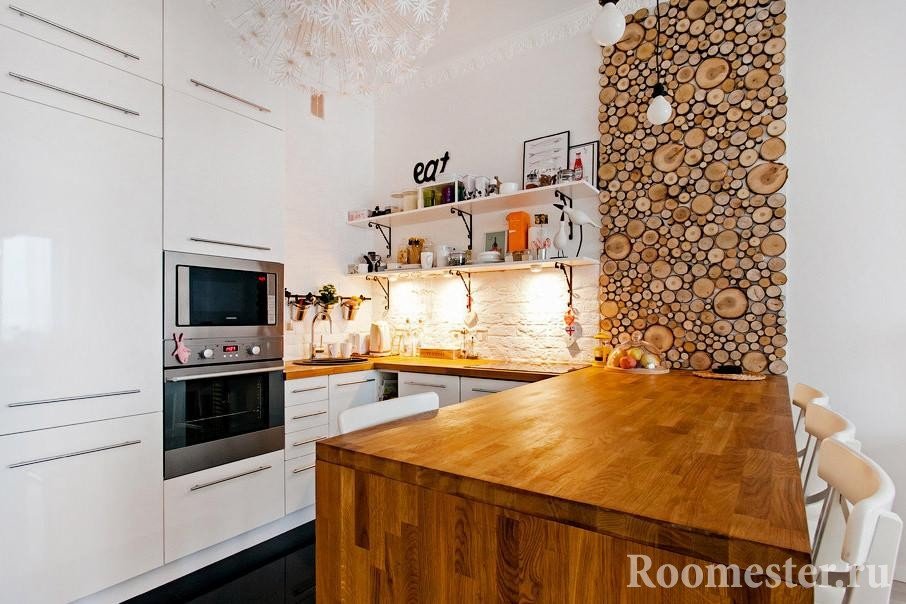
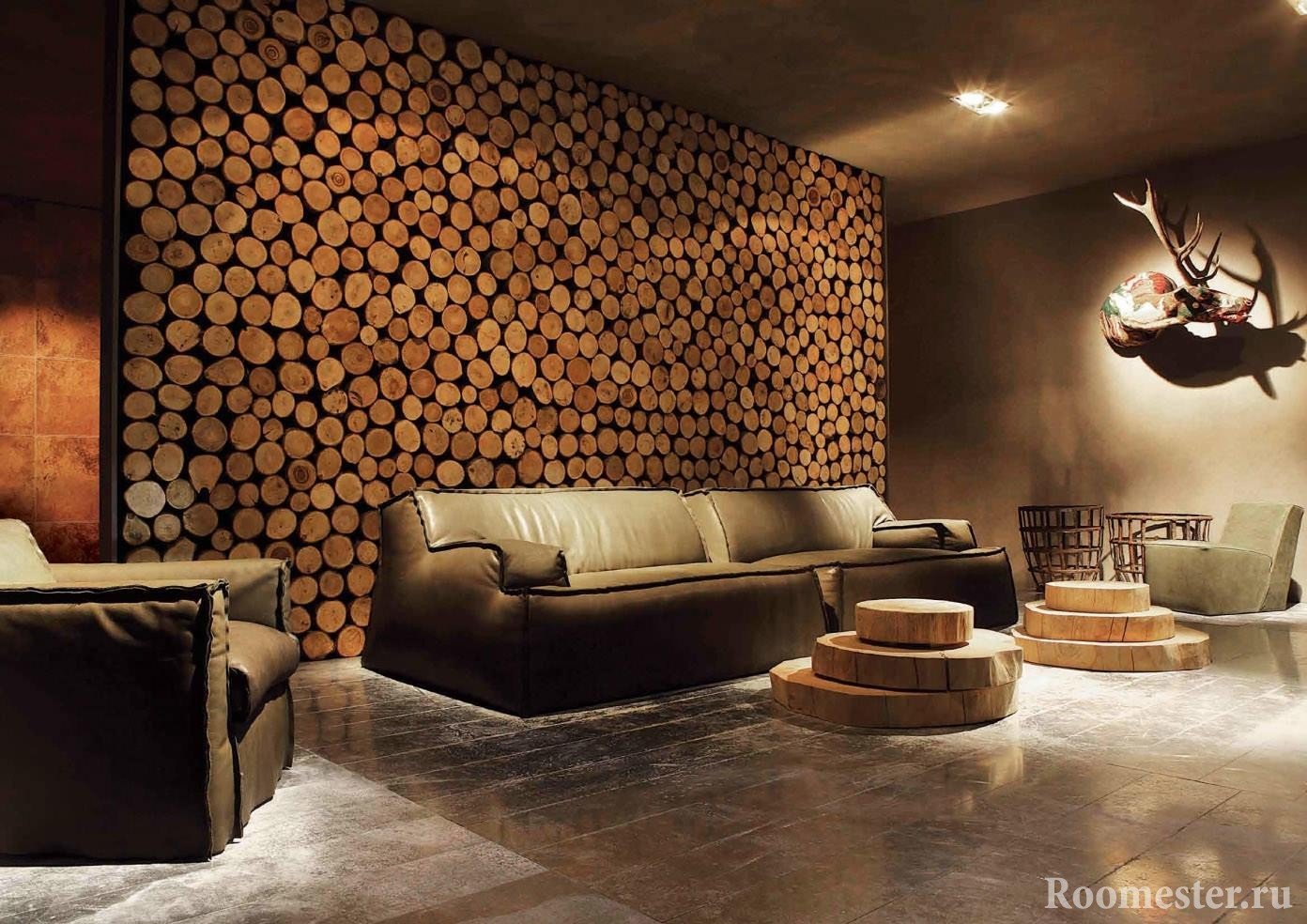
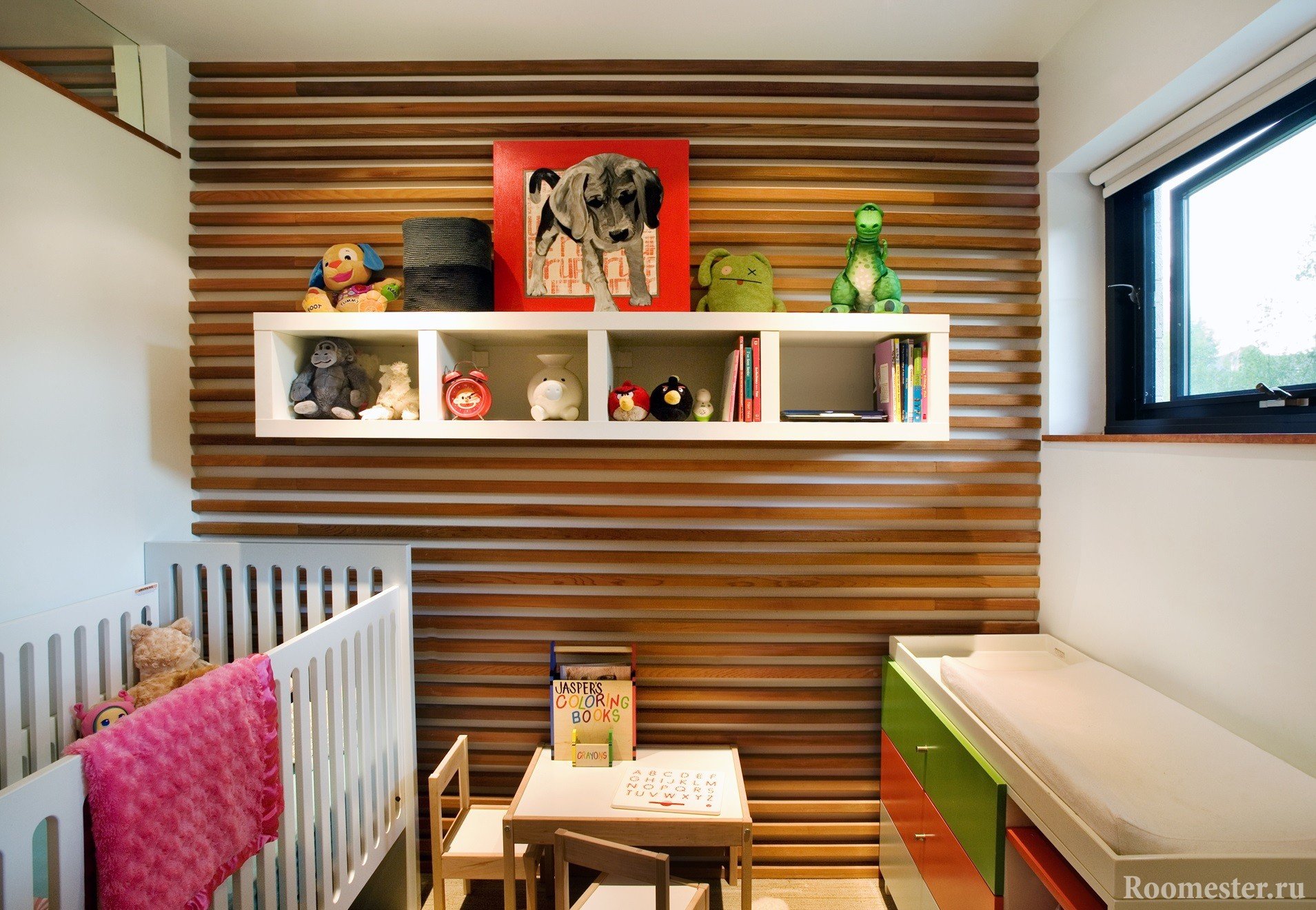
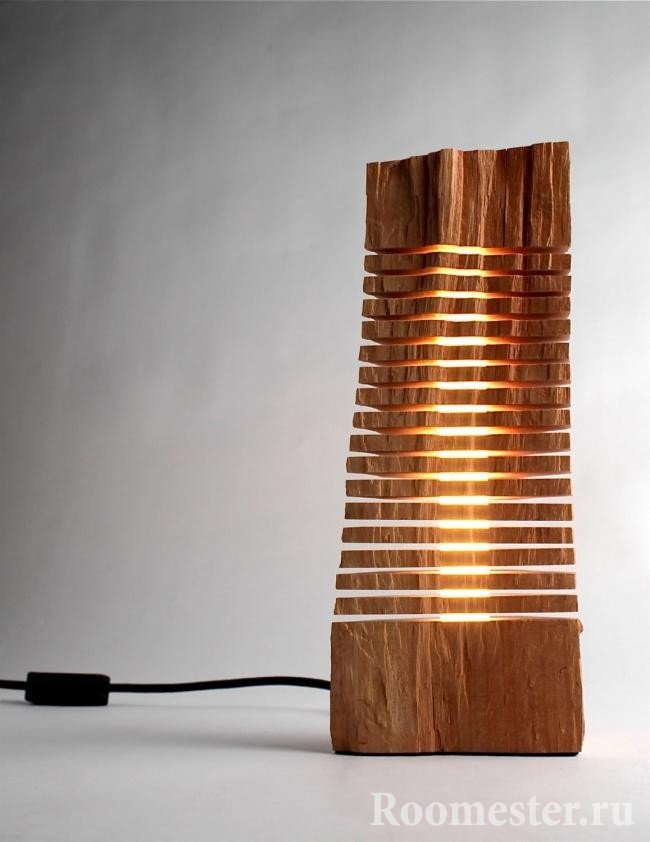
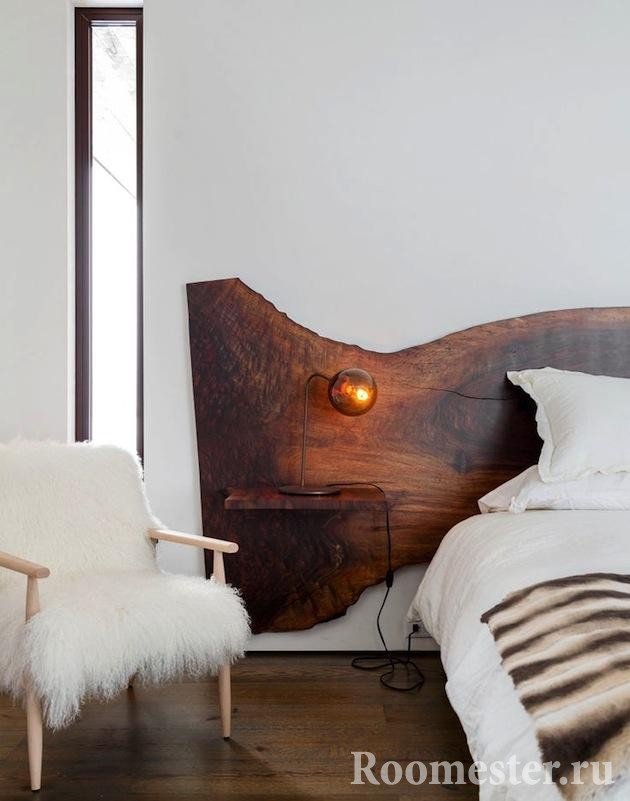
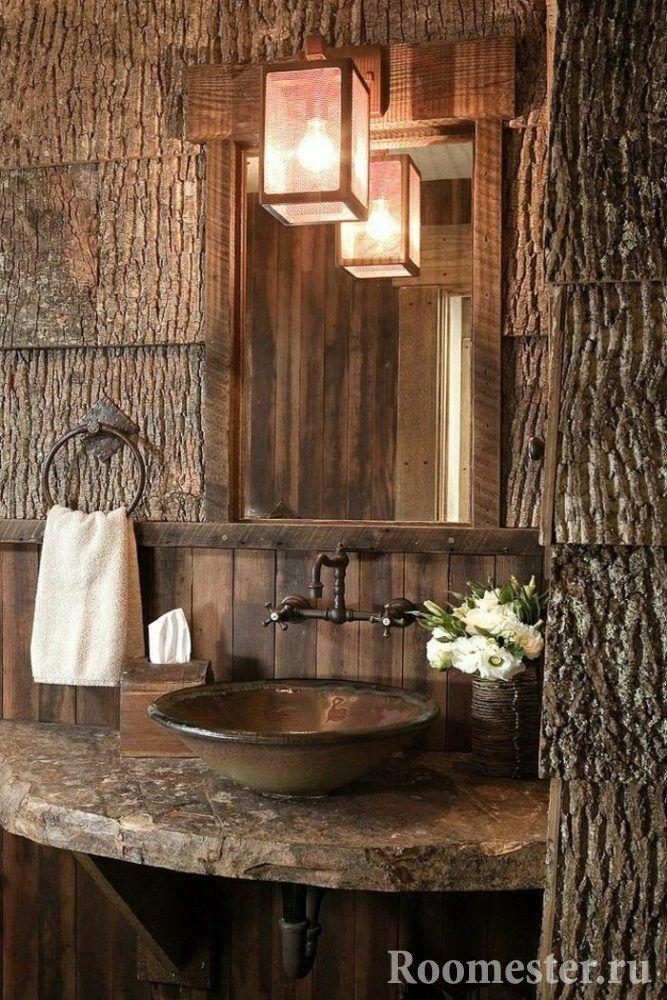
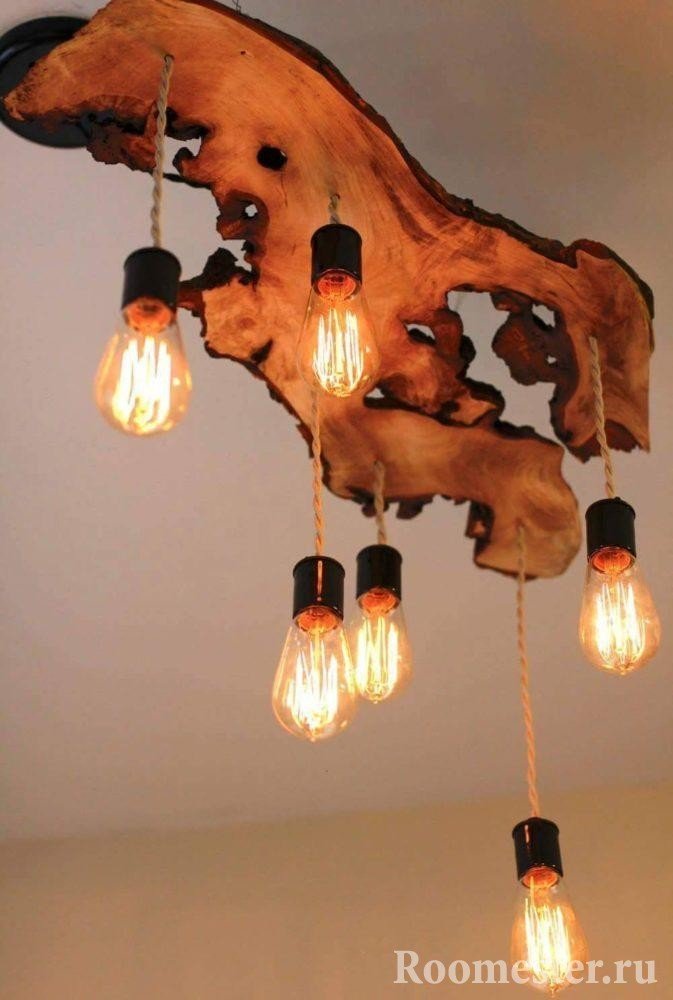
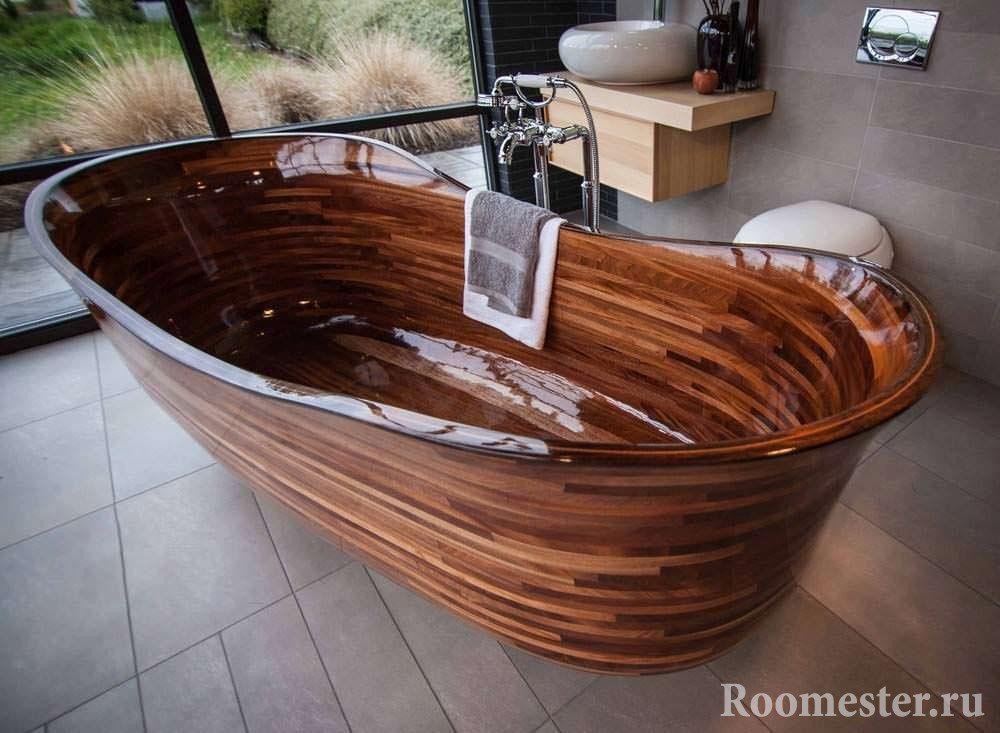
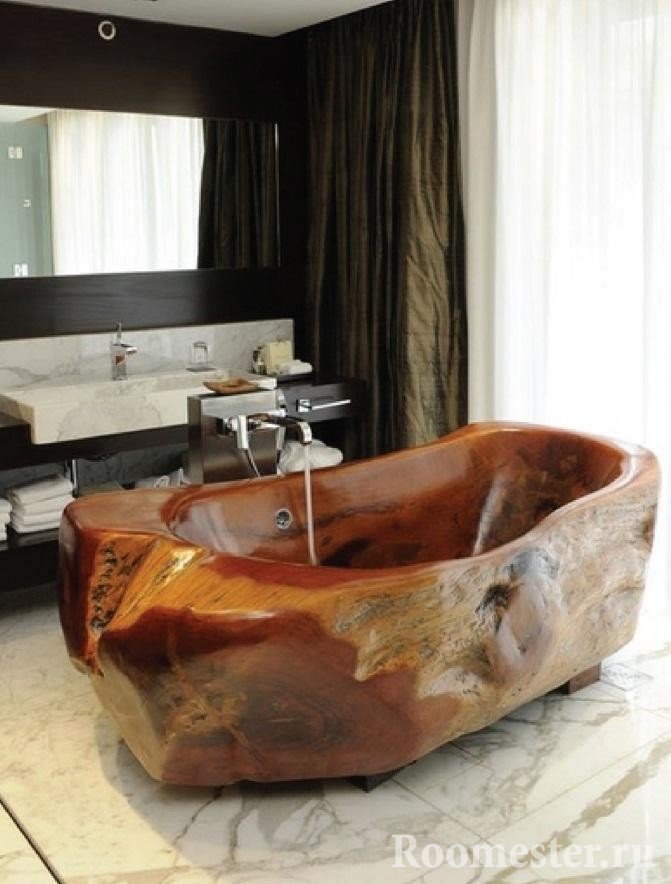
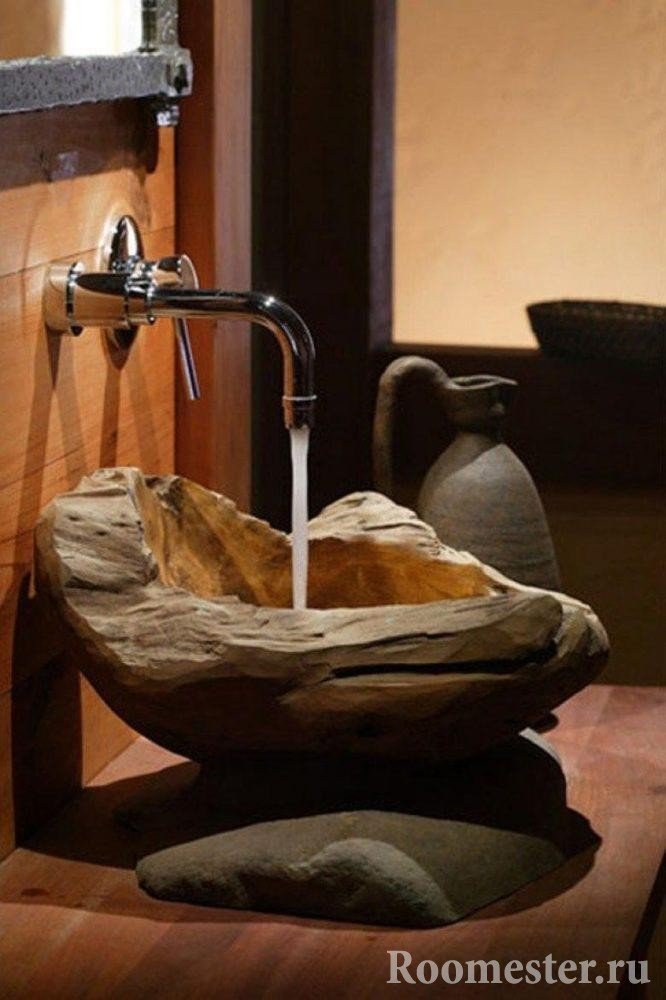
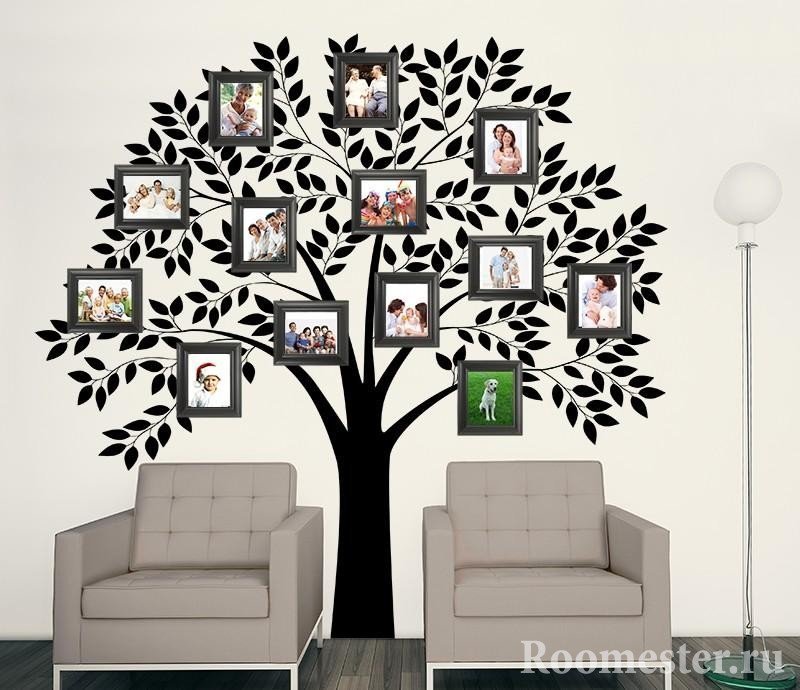
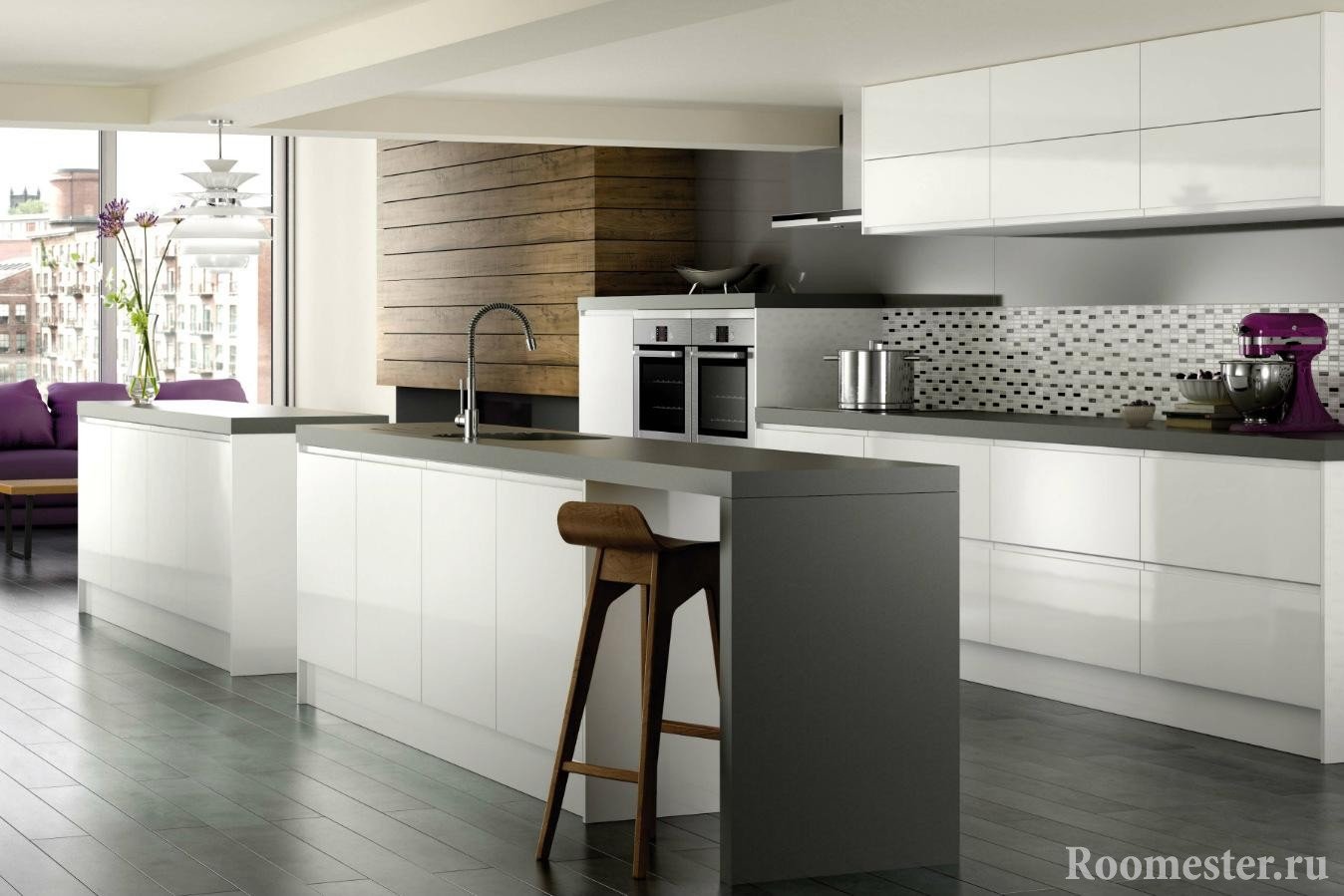
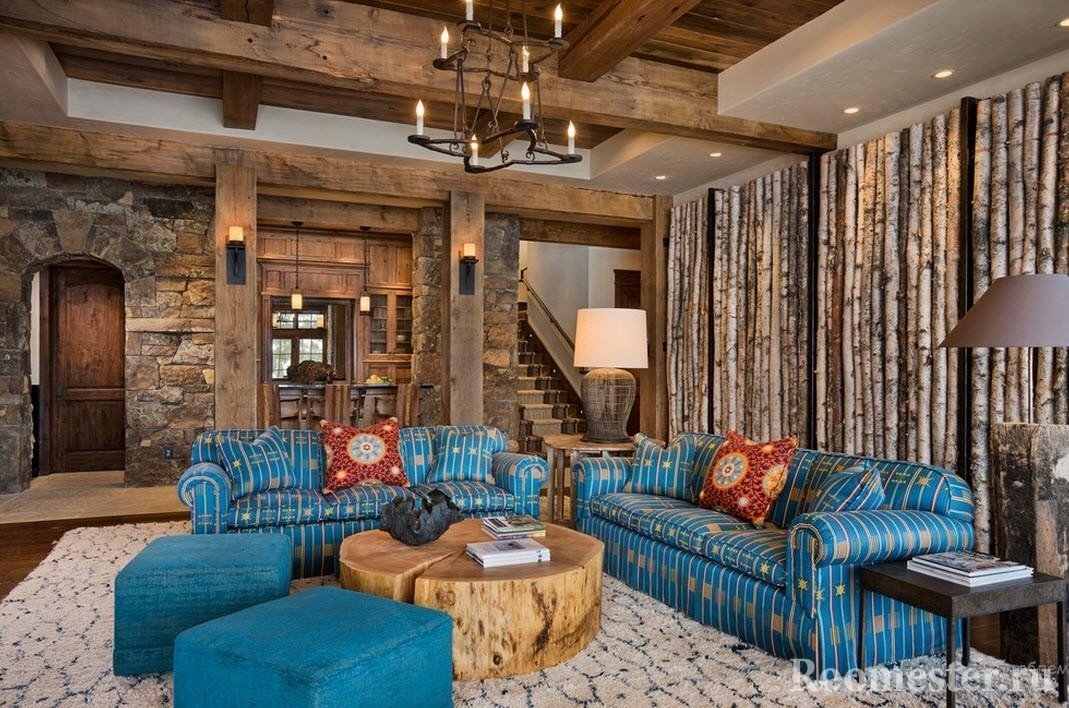
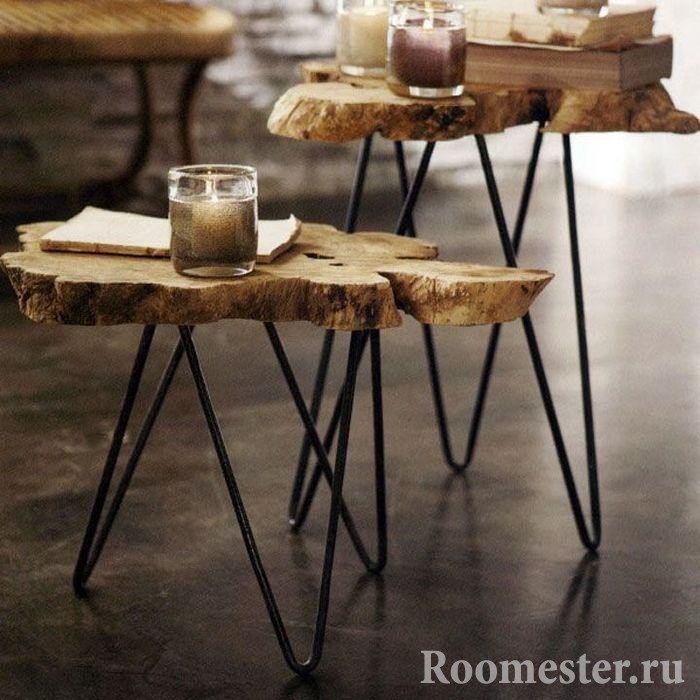
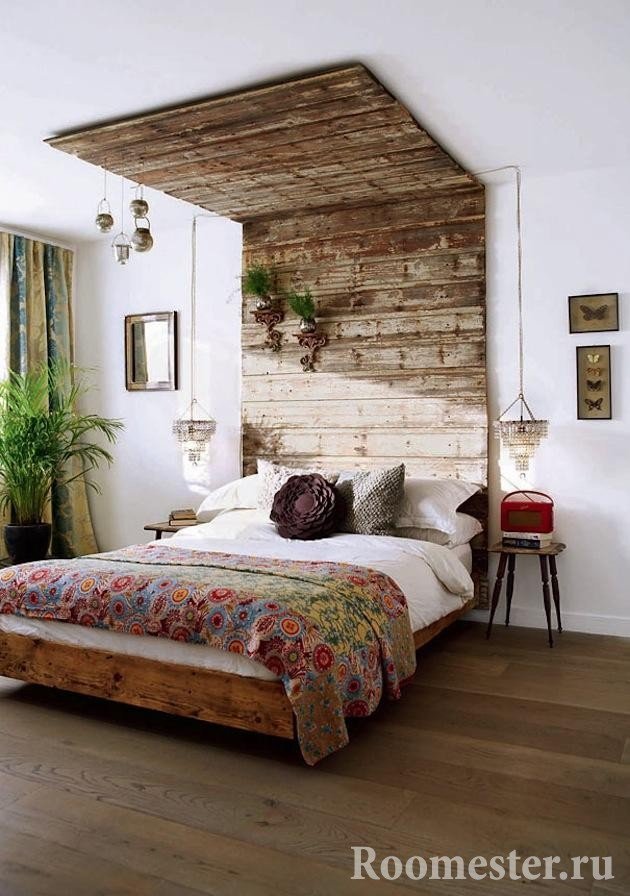

I emphasized a lot of ideas for myself, thank you.